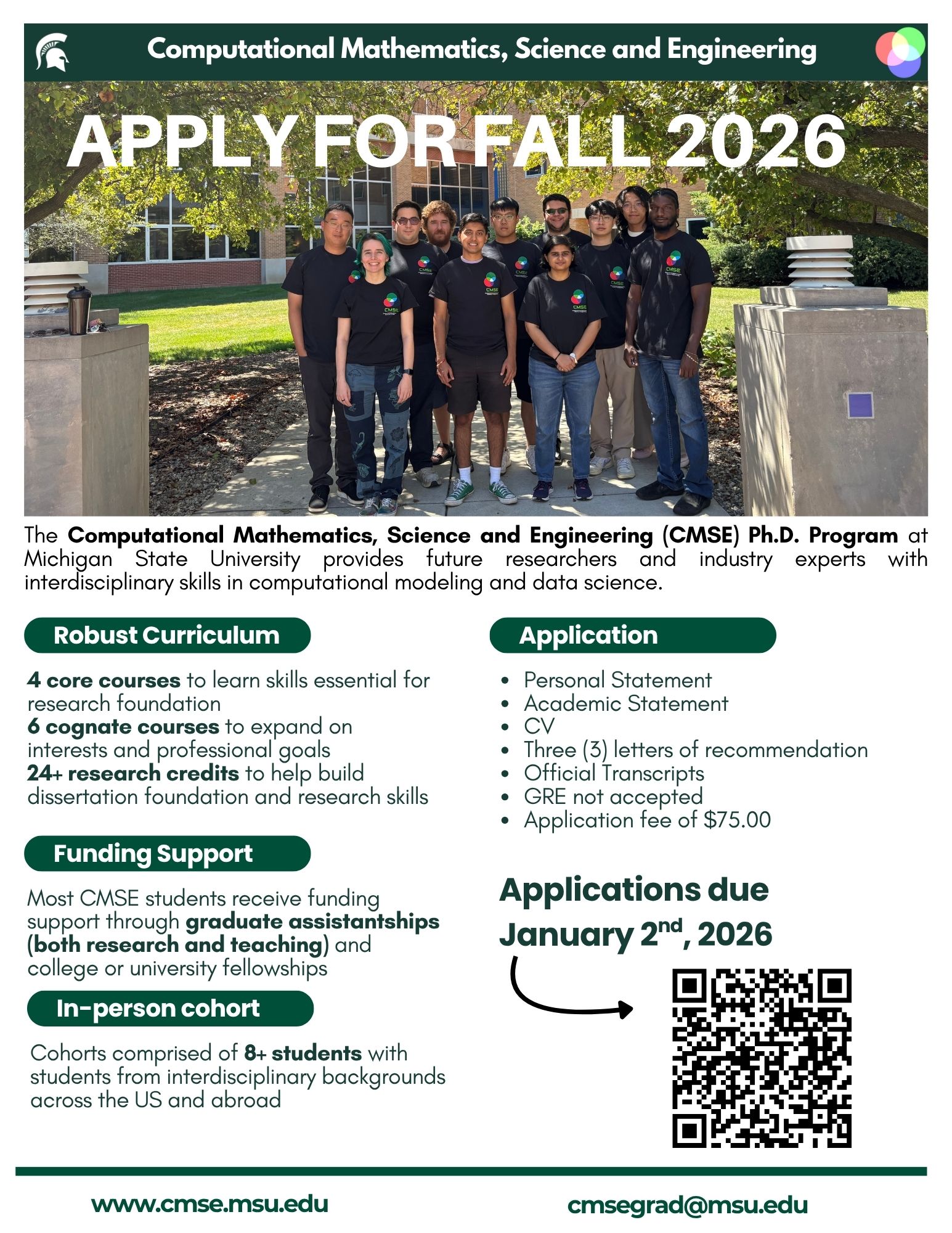A Methodology For Modeling Emergence in Complex Systems
Department of Community Sustainability
Department of Computational Mathematics, Science & Engineering
Michigan State University
Dissertation Defense Notice
Friday, July 14, 2023 at 11:00 am
Natural Resources Bldg, Rm. 338
Zoom Meeting ID: 929 7140 0130
Passcode: 621149
A METHODOLOGY FOR MODELING EMERGENCE IN COMPLEX SYSTEMS
By Nathan Brugnone
Understanding how social and ecological systems interact and work together as complex adaptive systems is essential for understanding the emergence of environmental and social systems states. However, complex systems domain general methods are not readily accessible to researchers and policymakers limiting our ability to both understand and intervene to address contemporary social and environmental problems. At the same time, rapid new developments in machine learning (ML) have allowed a sea change in extracting information from disparate datasets to make useful for human decision-making. This dissertation develops and studies novel ML methods to understand the emergent properties of complex systems. By proposing new approaches, we show how these emerging technologies can be applied to both (1) theoretical and (2) real-world problems. The first chapter introduces a domain-general unsupervised machine learning method for identifying clusters in data with hierarchical structure like that found in complex systems. Chapter 2 utilizes complex systems theory and theoretical machine learning to drive development of a theoretical framework and method for understanding graphical models of complex systems. The final chapter demonstrates how these methods can be applied through a case study of maternal and child healthcare (MCH) in Gombe, Nigeria.
Complex systems exhibit hierarchical structure that can be studied at various scales. Individuals are members of families who are in turn members of communities which are members of local government areas and so on. Chapter 1 proposes a clustering method that coarsens fine structures to reveal nested hierarchies in complex data. The method is presented in a theoretical framework based upon graph signal processing. The performance of this method is assessed on canonical ground-truth datasets. It is then shown to identify novel structure in real-world complex system data.
Complex systems can also be characterized by the patterns of emergent phenomena that they generate. These patterns often exhibit self-similarity which can be modeled with stochastic processes called textures. Chapter 2 introduces a theoretical framework that generalizes statistically self-similar random fields to graphs, again via the graph signal processing paradigm. Perhaps surprisingly, this generalization is shown to facilitate the classification of cognitive maps based upon structure. We model cognitive maps with samples from random graph families. We find that the statistical model produces sufficiently rich features to enable the accurate classification of these random graph families, thereby paving the way to application in unsupervised, real-world contexts.
Chapter 3 builds upon Chapters 1 and 2 by introducing a novel clustering method and comparing its performance with two others on real-world complex systems data. The data consists of value-laden statements made by expectant mothers and fathers in Gombe, Nigeria about utilization of the local maternal and child health (MCH) system. We take a methodological approach to identifying groups of individuals expressing similar values, which we seek to improve wisdom-of-crowds estimates of healthcare utilization. Similarities and differences among the identified values-based subpopulations provide insight into challenges and potentials for application of machine learning in similar development contexts.
Committee (Alphabetical Order):
Dr. James Gentile
Dr. Steven Gray (Chair)
Dr. Rebecca Jordan
Dr. Elizabeth Munch
Dr. Michael Murillo



